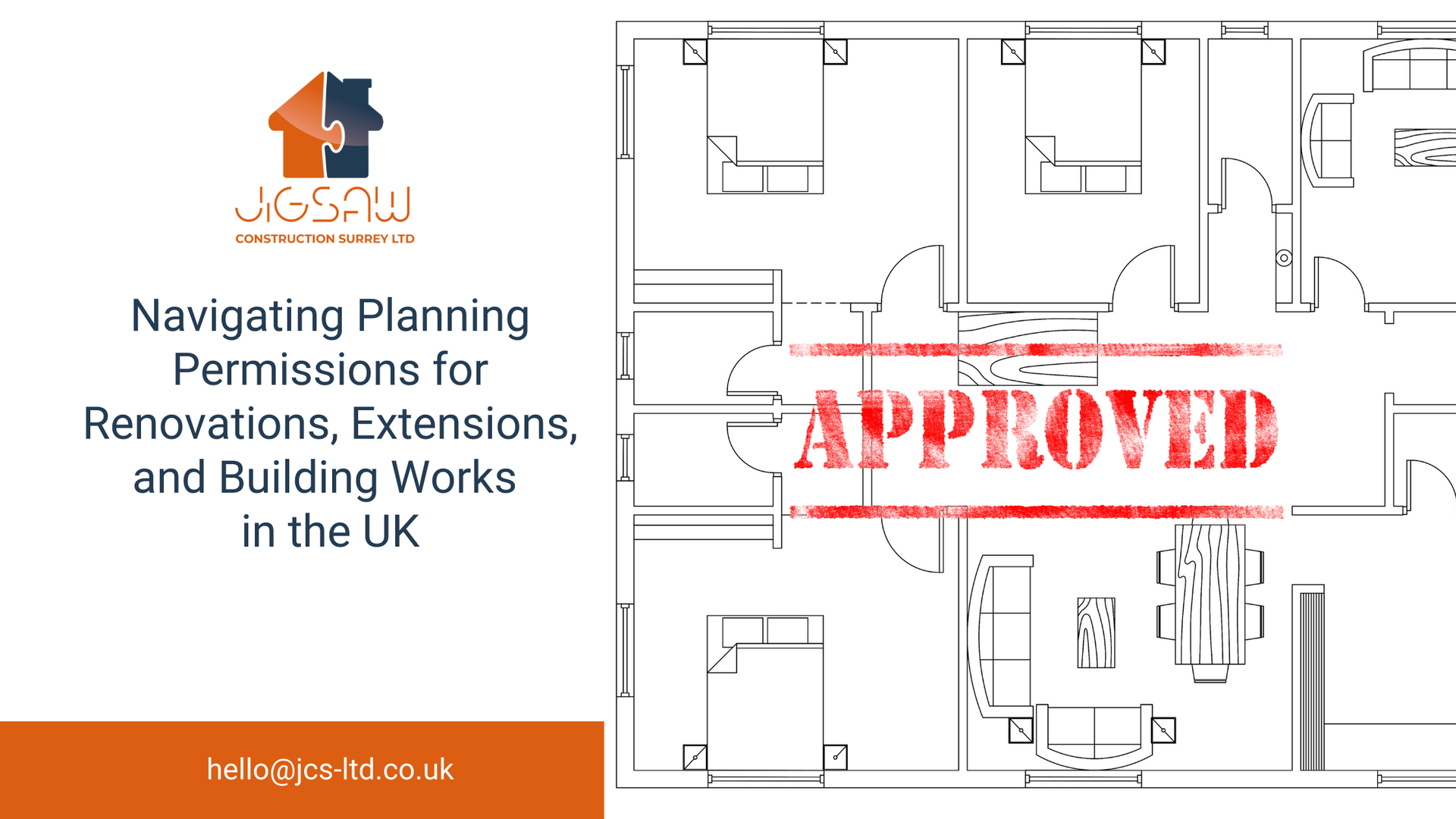
Connect with Jigsaw Construction
Brush Up Your Home for Summer

Ah, July! The sun is shining, the days are long, and it's the perfect time to give your home's exterior a refresh. Here at Jigsaw Construction, Surrey, we see a surge in painting projects this month, and for good reason. Fresh paint on your render (exterior wall surface) and woodwork can completely transform your home's curb appeal, making it the envy of the block.
But before you grab a brush and dive in, here are some key things to consider for painting your render and woodwork in July:
The July Sun- A Blessing and a Curse
July's sunshine provides ideal drying conditions for paint, but it can also work against you. Here's how to manage the heat:
- Pick Your Time Wisely: Avoid painting in the hottest part of the day. Early mornings or evenings offer cooler temperatures that allow the paint to dry evenly and prevent it from baking on too quickly.
- Work in Sections: Don't try to tackle the entire house at once. Break down the project into smaller sections and paint them in stages to avoid large areas of exposed render in direct sunlight.
- Keep it Hydrated: This applies to both you and the paint! Stay hydrated with water while you work and consider using a damp cloth to occasionally wipe down the painted area to prevent the paint from drying too quickly.
Choosing the Right Paint for Render and Woodwork:
Render
Choose a breathable masonry paint specifically designed for exterior use on rendered surfaces. These paints allow moisture vapor to escape from the wall, preventing problems like blistering and peeling.
Woodwork
Choose a high-quality exterior wood paint that can withstand the elements. Consider a paint with a built-in primer for added protection, especially on weathered wood.
Preparing for Perfection
A good paint job is all about proper preparation. Here's what you need to do:
- Thoroughly clean both the render and woodwork to remove dirt, dust, cobwebs, and any loose paint. A power washer can be a helpful tool for render, but always use a low-pressure setting to avoid damaging the surface.
- Fill any cracks or holes in the render with a suitable exterior filler. Sand down any rough surfaces on both the render and woodwork to ensure a smooth finish for the paint.
- Use masking tape to protect areas you don't want painted, like windows, doors, and gutters.
The Finishing Touches
Once the painting is complete, remove all masking tape carefully. Inspect your handiwork and touch up any minor imperfections. Finally, sit back and admire the refreshed look of your home!
In July, it's especially important to be mindful of the potential for wasps and bees. Choose a location away from your work area to store your paint and equipment to avoid attracting these summertime pests.
Why Use Professionals?
While exterior painting might seem like a DIY project, there are several advantages to hiring a professional company like Jigsaw Construction Surrey.
Quality and Expertise
We have the experience and knowledge to properly prepare surfaces, choose the right paint for your climate and materials, and apply it with a flawless finish. This leads to a longer-lasting, better-looking paint job.
Safety
Exterior painting often involves working at heights and around electrical hazards. Professionals are trained and insured to handle these risks safely.
Efficiency and Timesaving
Painting your house exterior is a time-consuming job. Professionals can get the job done quickly and efficiently, minimising disruption to your routine.
Cleanliness
Pros know how to properly protect your property from paint splatters and drips. They'll also clean up thoroughly after the job is finished.
Warranty and Guarantee
At Jigsaw Construction Surrey, we offer warranties on our work giving you peace of mind that we will fix any problems that arise.
Ready to give your home a July makeover? Contact Jigsaw Construction today for a free quote on your painting project!



